Expanding your website to multiple languages has never been easier. With our latest no-code website translation feature, you can now translate any website effortlessly—without modifying your codebase or altering your technical setup.
The Easiest Way to Translate Any Website
Whether you have a simple landing page, a complex web application, or a fully dynamic e-commerce platform, Lugath’s website translation works seamlessly across all types of websites. There’s no need to worry about your site’s technical structure—our solution adapts to any framework or CMS, ensuring a smooth translation process.
SEO-Friendly and Server-Side Rendering Support
Lugath provides two translation modes:
- Client-Side Translation – When a user selects a different language from the language switcher, the content is instantly translated on the fly without reloading the page.
- Server-Side Translation – For businesses focusing on SEO, translated versions of your website can be served from Lugath’s CDN, ensuring that search engines properly index multilingual content for higher rankings.
By enabling server-side translation, you ensure that your localized content is fully accessible to search engines, making your website discoverable across global markets. Additionally, your sitemap will be up to date whenever you make changes to translated pages.
How to Translate Your Website in 7 Steps
Bringing your website to a global audience has never been easier. Follow these seven steps to set up Lugath’s no-code website translation and start serving your content in multiple languages effortlessly.
1. Create Your Website on Lugath
Start by adding your website to Lugath’s dashboard. This is the first step in enabling automatic translation and managing your multilingual content. You can start by defining the name of website and the technology behind it.
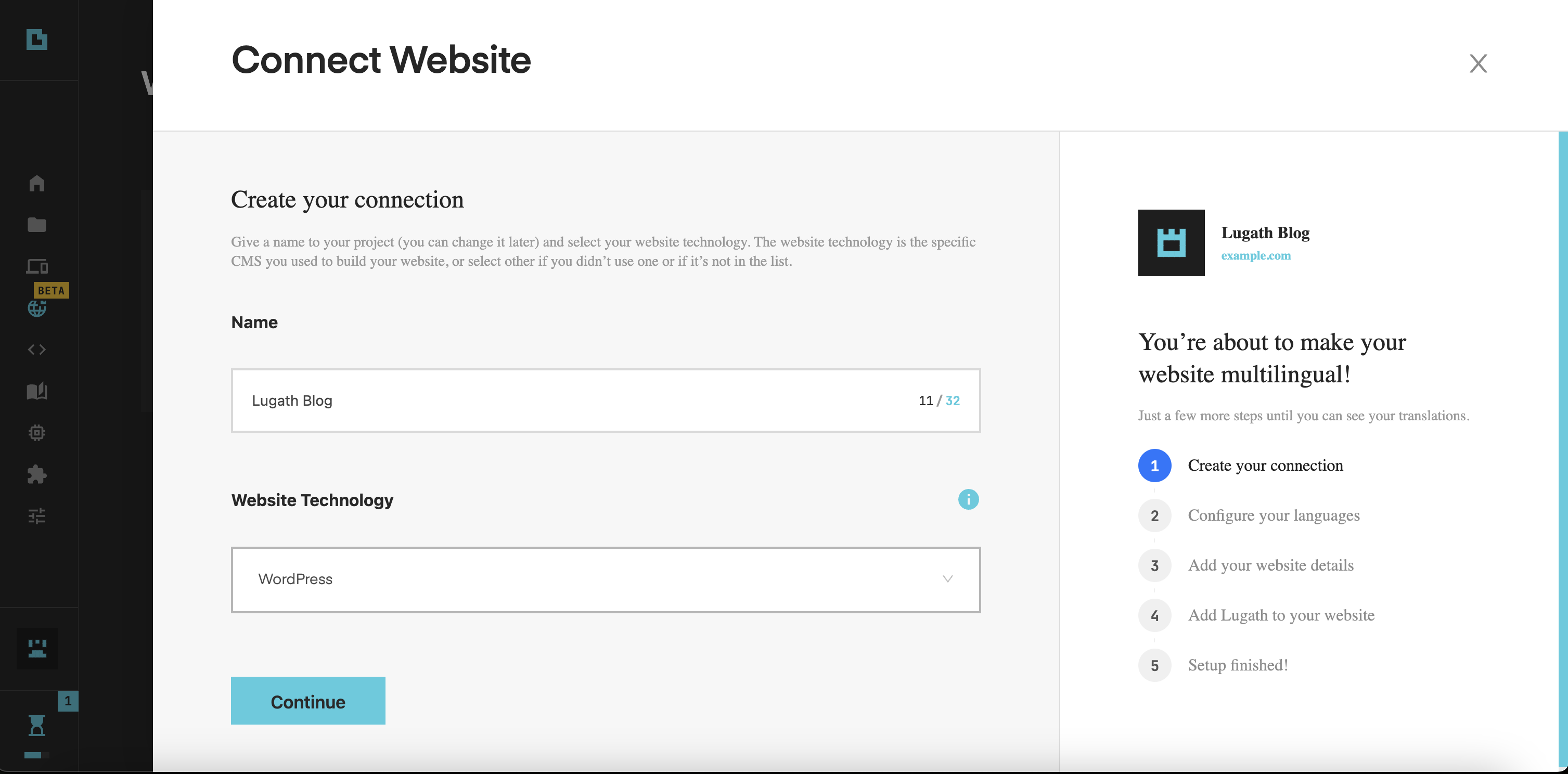
2. Select Your Source and Target Languages
Choose the original language of your website and select the languages you want to translate it into. Lugath supports multiple languages, helping you reach new audiences.
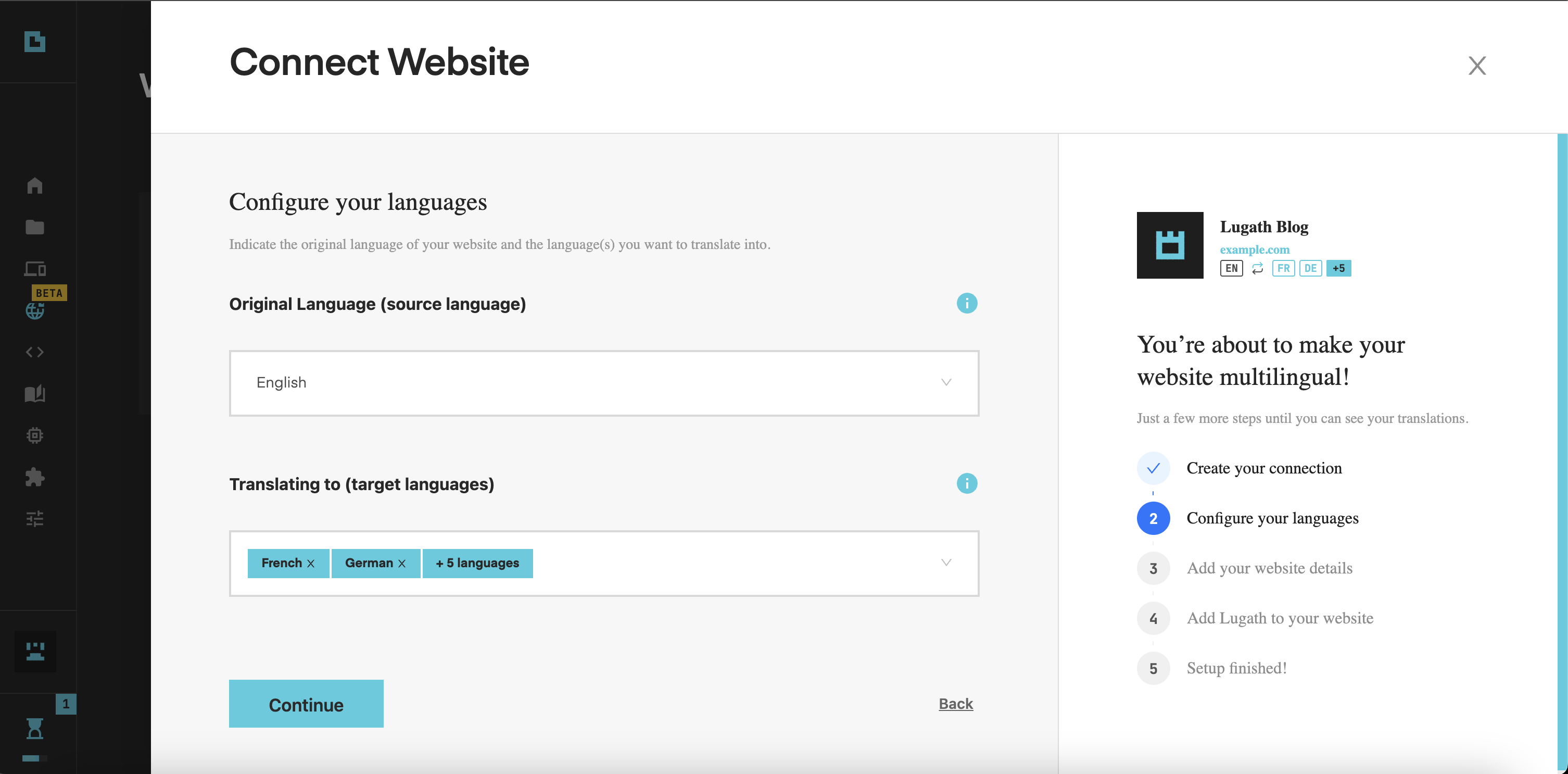
3. Define Your Website Domain
Enter your website’s domain so that Lugath can correctly associate translations with your site and ensure smooth integration.
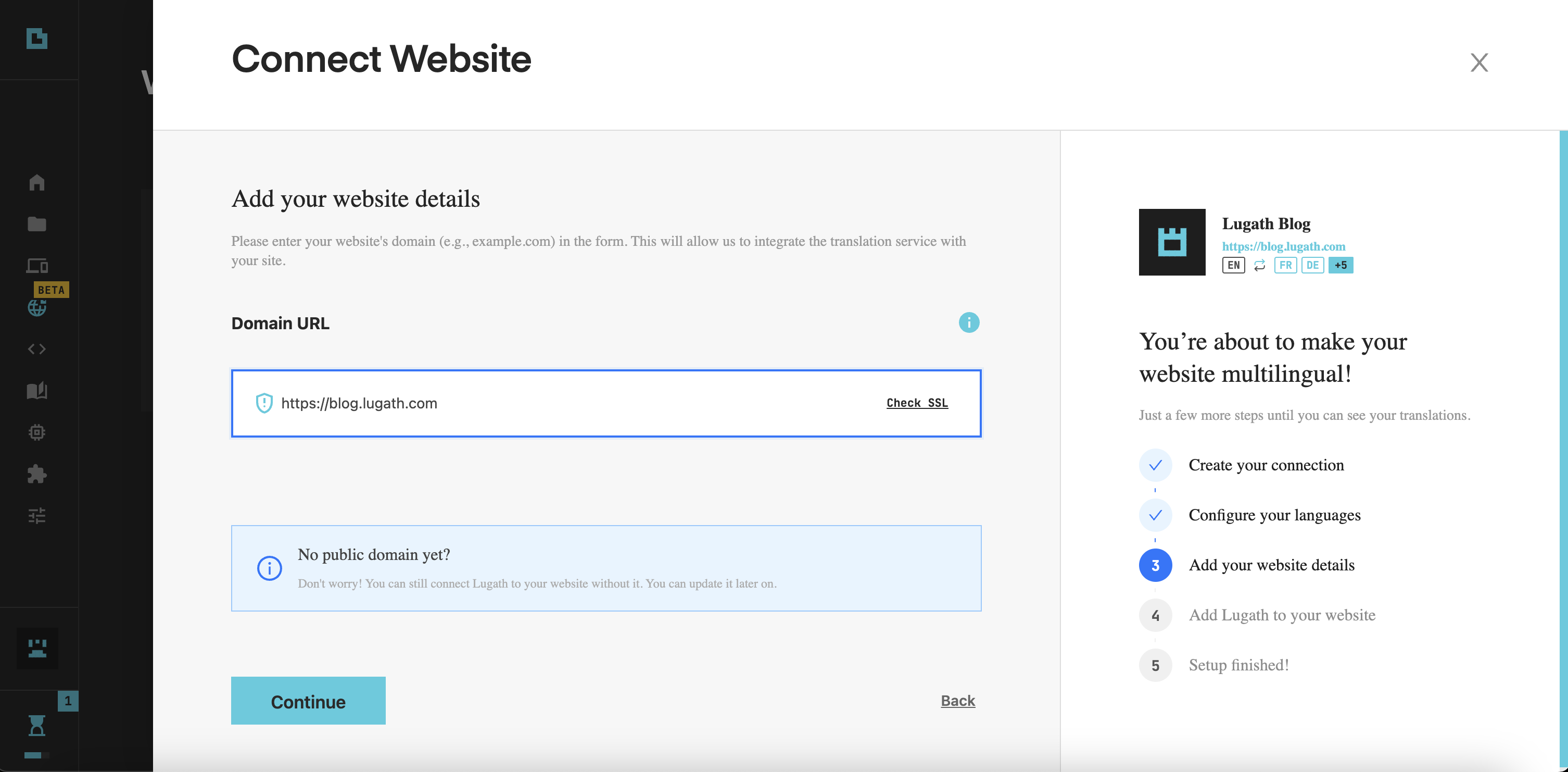
4. Add Lugath’s Script to Your Website
Integrate Lugath’s translation script into your website. You can do this in three ways:
- Through your CMS (e.g., WordPress, Shopify, Webflow)
- Using Google Tag Manager for easy deployment
- Manually adding the script to the website
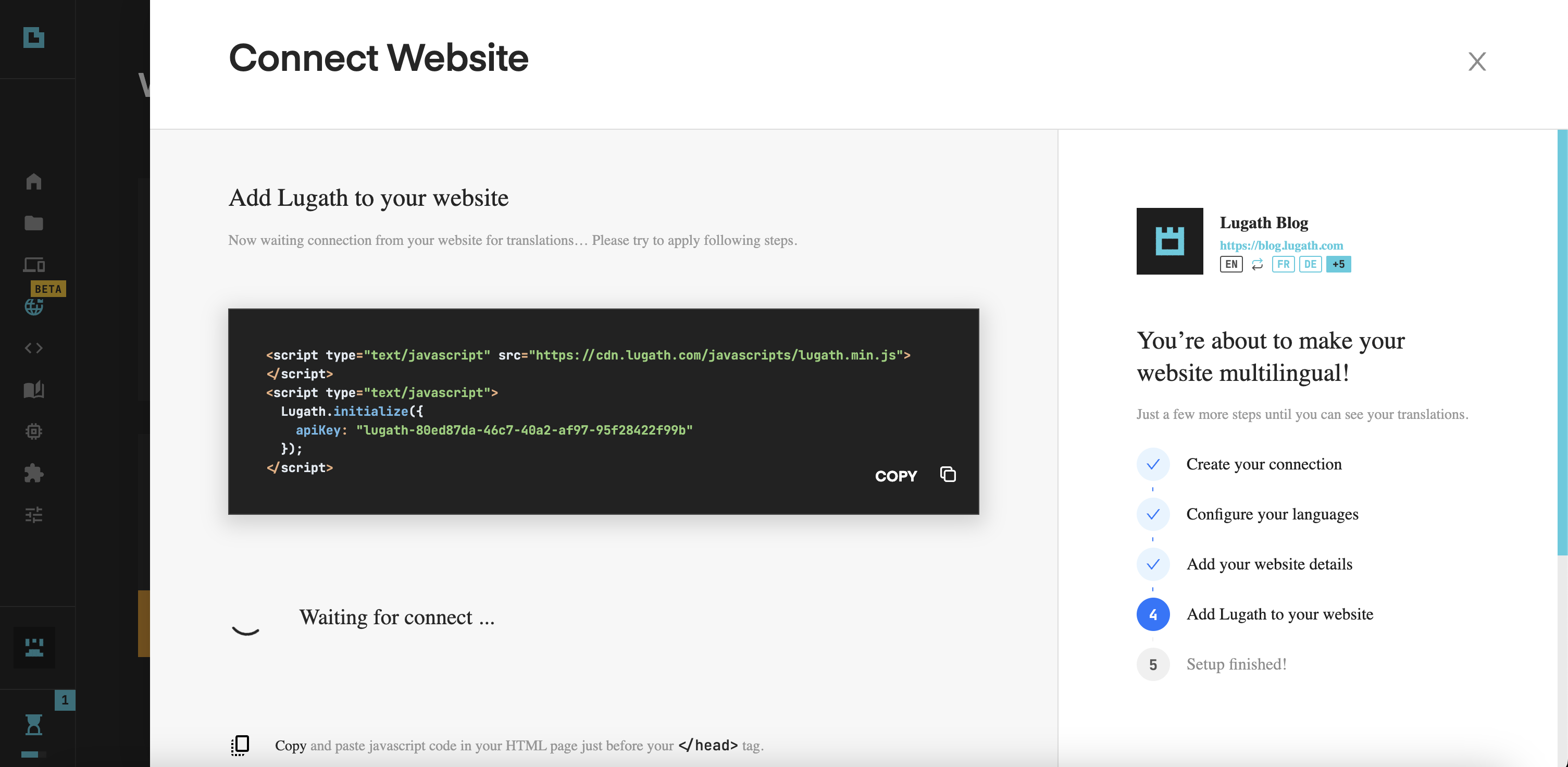
Check if the script is loaded correctly by opening your website. If the language switcher appears at the bottom right corner, the script is active. You can customize its appearance and placement as needed.
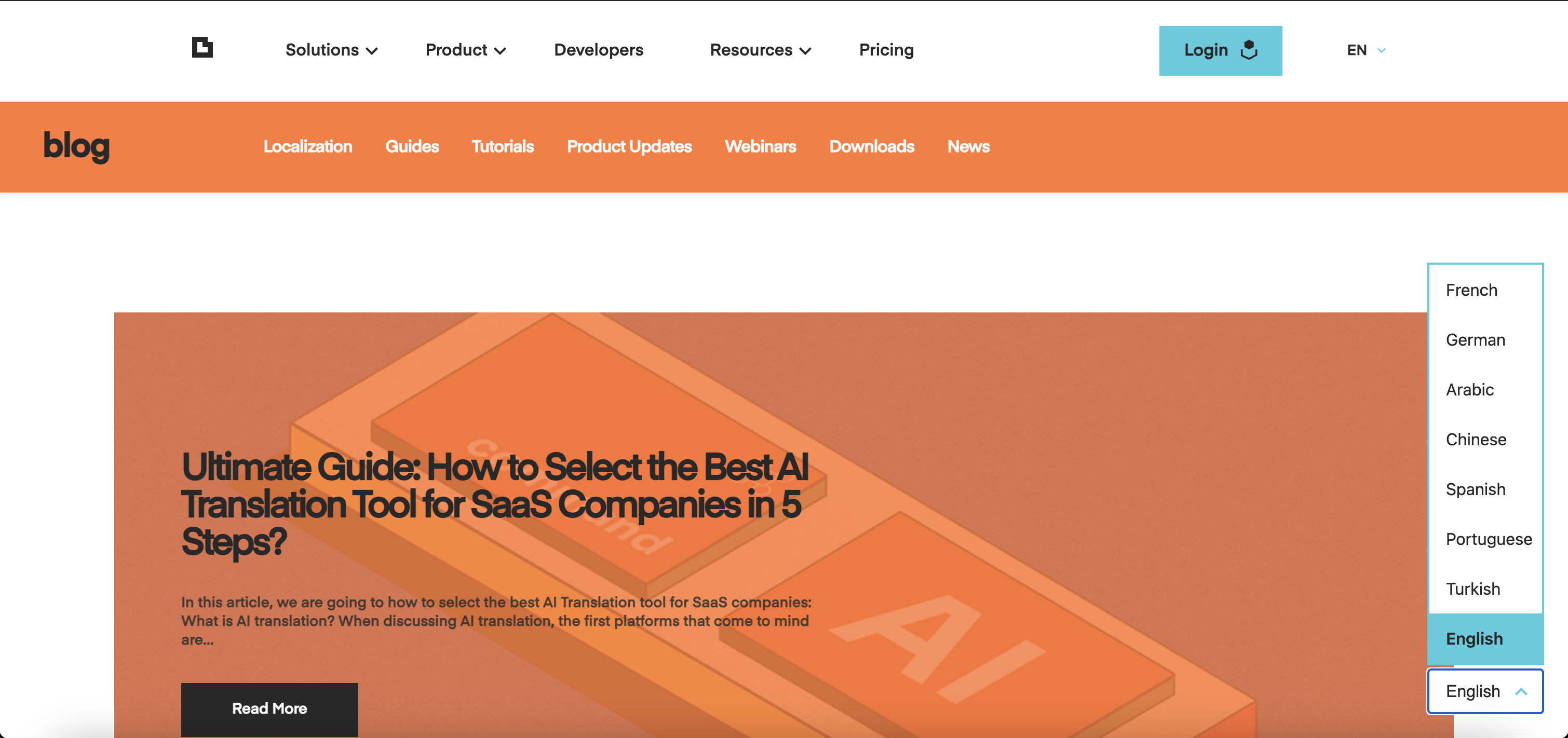
5. First Translation Call
Once the script is active, test the first translation request by switching to a new language using the language switcher. This triggers Lugath’s translation engine and establishes the connection between your website and Lugath.
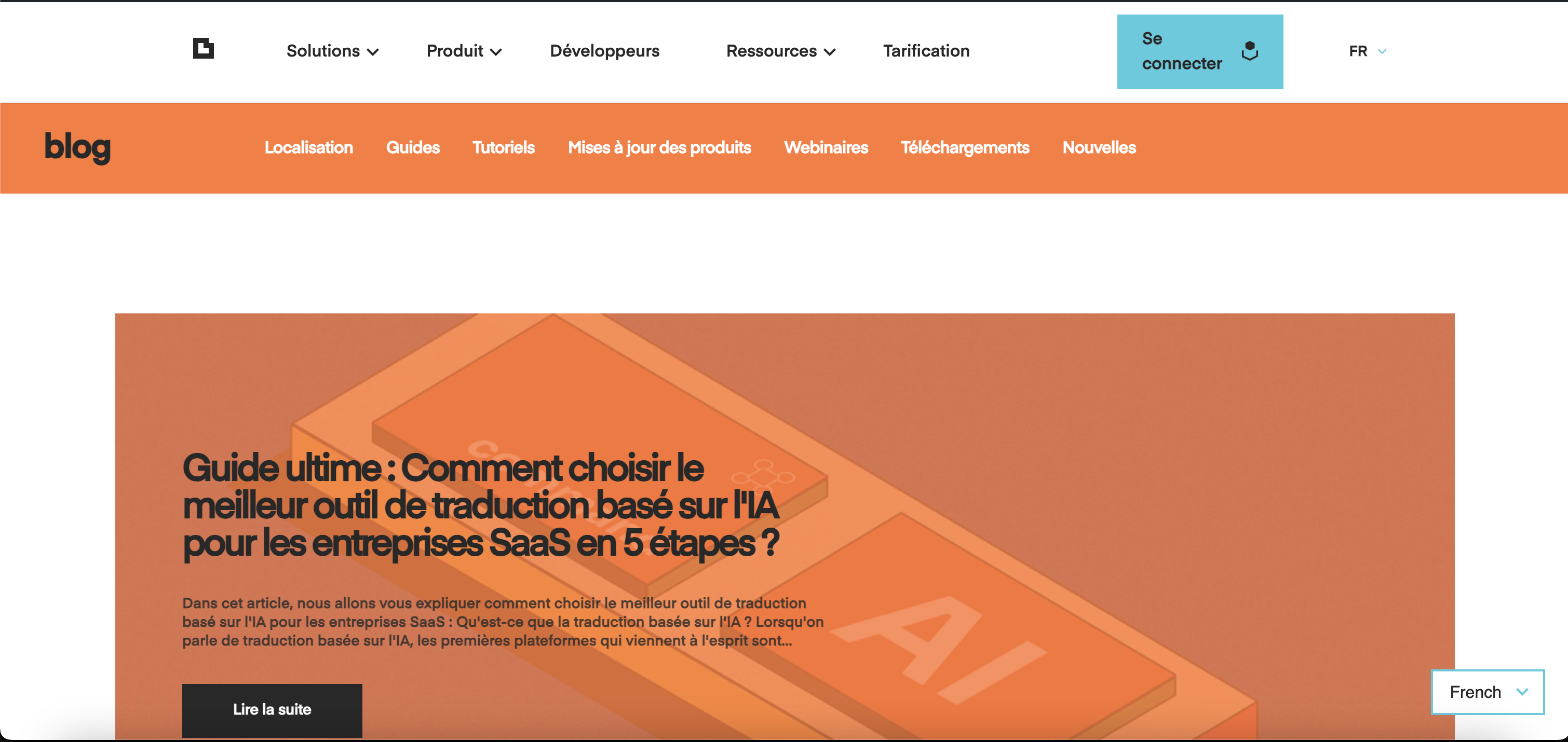
6. Manage Your Translations in Lugath
Click “Go to Translations” in the Lugath dashboard. This confirms that your website is correctly linked to Lugath, allowing you to manage translations and fine-tune settings.
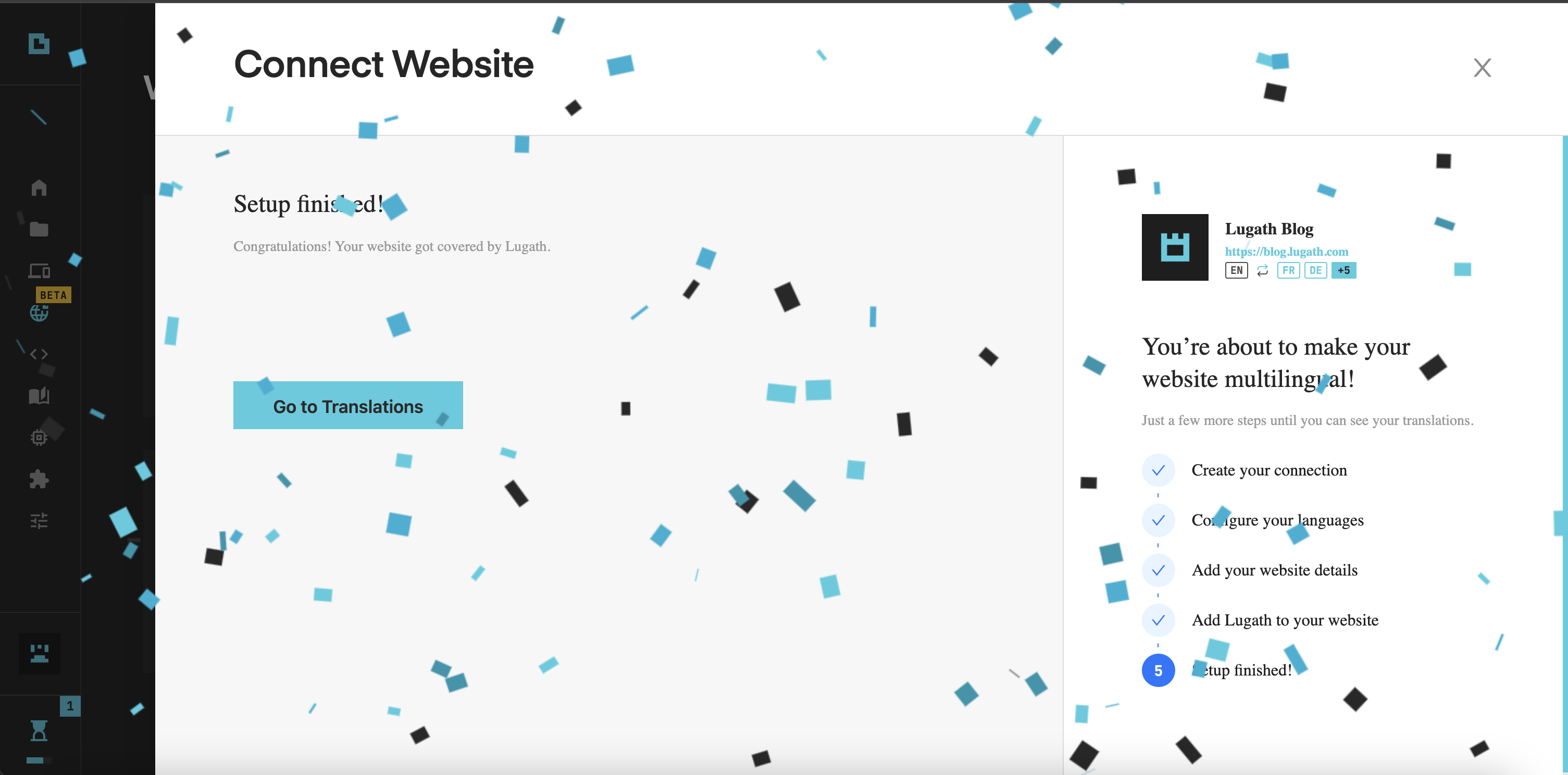
7. Configure Site Settings & Advanced Rules
On the Site Settings page, you can:
- Define in-page rules to control which sections or components should be translated
- View and edit translated pages
- Choose between client-side or server-side translation
- Customize the language switcher
Set page-specific rules, such as excluding certain pages from the translation
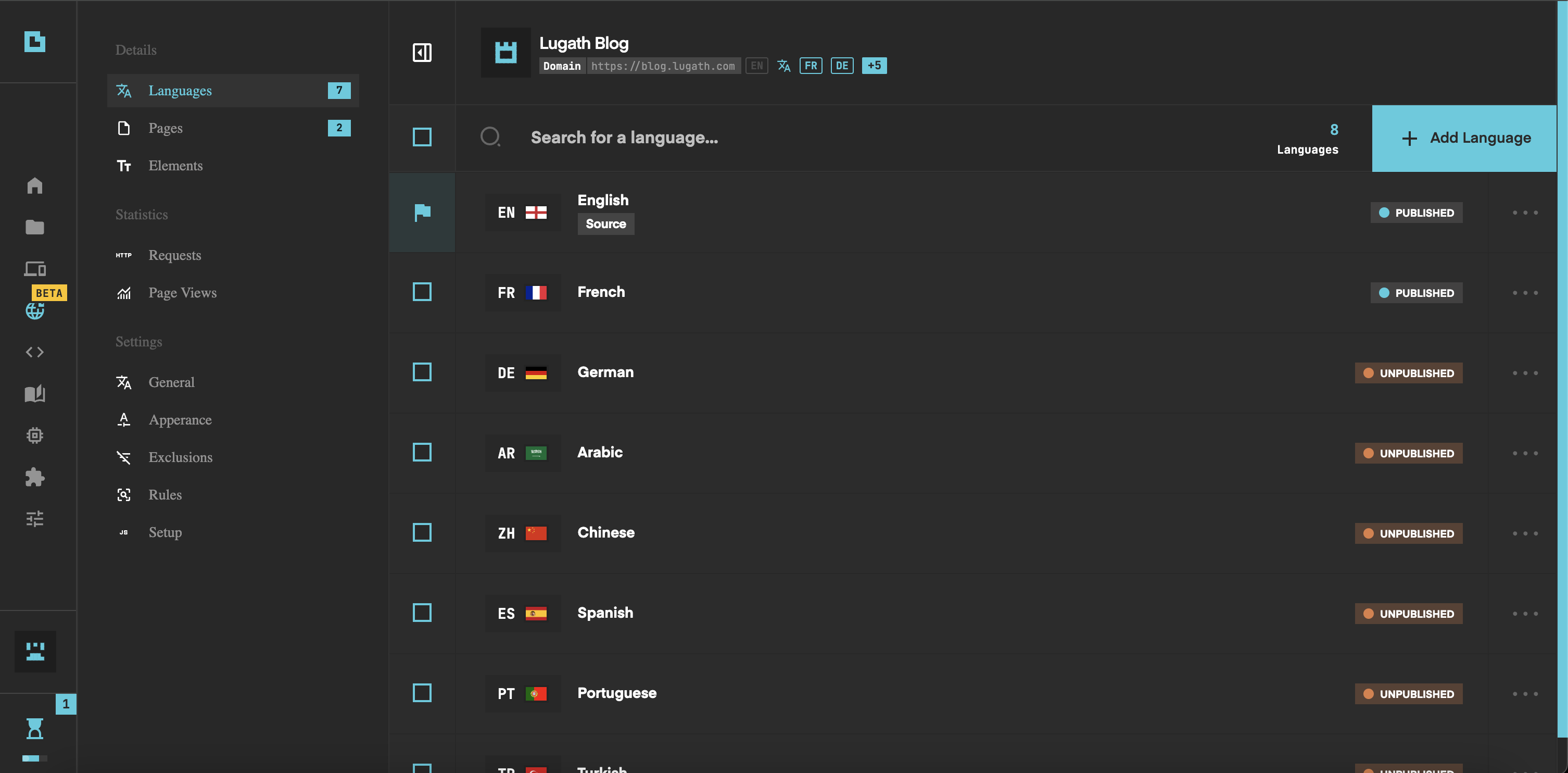
Try These Features with Lugath Freemium
Dive into our latest website translation capabilities with Lugath Freemium. Our free tier grants access to essential translation and localization features:
- No-Code Website Translation: Test our effortless, framework-agnostic translation solution without modifying your existing code.
- Client & Server-Side Translation: Experiment with both translation modes to find the best setup for your website.
- SEO-Optimized Localization: Ensure your translated pages are indexed properly and improve your search engine rankings.
- Lugath Analytics & Budget Management: Track translation requests by URL and language to optimize costs. Monitor which pages receive translation requests and analyze visitor traffic on translated pages. Use this data to allocate additional human translation resources where needed to enhance quality.
Lugath continuously enhances its platform to meet the evolving needs of users. These March 2025 product updates are part of our ongoing efforts to provide the best translation and localization services. We invite you to explore these new features and share your feedback with us. Your insights help us improve and deliver an even better experience.
Stay tuned for more product updates as we continue to innovate and expand our capabilities.